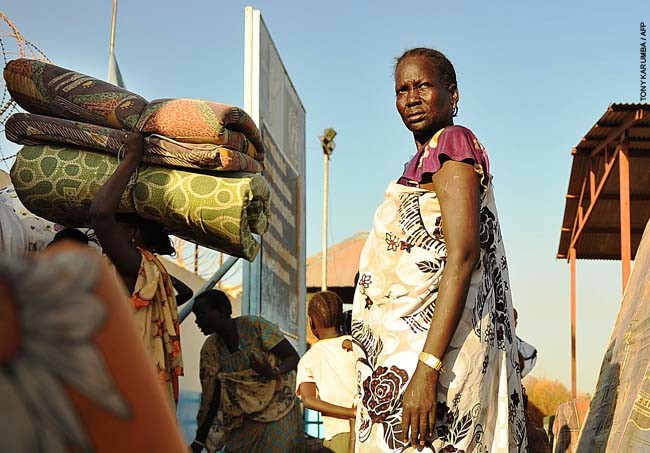- What We Do
- Agriculture and Food Security
- Democracy, Human Rights and Governance
- Economic Growth and Trade
- Education
- Environment and Global Climate Change
- Gender Equality and Women's Empowerment
- Global Health
- Humanitarian Assistance
- Transformation at USAID
- Water and Sanitation
- Working in Crises and Conflict
- U.S. Global Development Lab
Speeches Shim

Latest Fact Sheet
Key Developments
Heavy rains and seasonal flooding since July have adversely affected more than 1 million people and resulted in widespread agricultural and property damage.
UN Food and Agriculture Organization and World Food Program (WFP) analysis indicates continued severe acute food insecurity in South Sudan as of October.
USAID's Bureau for Humanitarian Assistance partner WFP provides food assistance in response to increased COVID-19-related humanitarian needs in South Sudan.
Background
Since gaining independence from Sudan on July 9, 2011, South Sudan has confronted a number of humanitarian challenges, including population movements and returnee integration. Ongoing conflict in Sudan’s Two Areas of Blue Nile and Southern Kordofan continues to result in refugee flows into South Sudan, straining scarce resources. In addition, many of the people displaced by violence in 2011 from areas north of the River Kiir in the disputed Abyei Area continue to reside in South Sudan. In the two and a half years since people of South Sudanese origin began returning from Sudan on a large scale directly before and after independence, vulnerable communities in South Sudan have struggled to accommodate more than 700,000 new arrivals, many of whom are rebuilding lives and livelihoods with few resources from which to draw. Inter-communal violence and general insecurity also persist in several parts of the country, particularly in Jonglei State, where fighting has led to significant displacement and deteriorating humanitarian conditions.
Lingering effects from more than 20 years of north-south conflict, poverty, and continued tension with Sudan, which led to a cessation of oil exports in 2012 that damaged South Sudan’s economy, compound the humanitarian situation. Confronting deteriorating economic conditions, populations are less able to cope with shocks and increasingly rely on the humanitarian community for basic food and non-food assistance. However, insecurity, bureaucratic harassment of relief organizations, logistical challenges, and Government of the Republic of South Sudan-imposed restrictions constrain humanitarian activities across the country, hindering the delivery of critical assistance to populations in need.

Comment
Make a general inquiry or suggest an improvement.